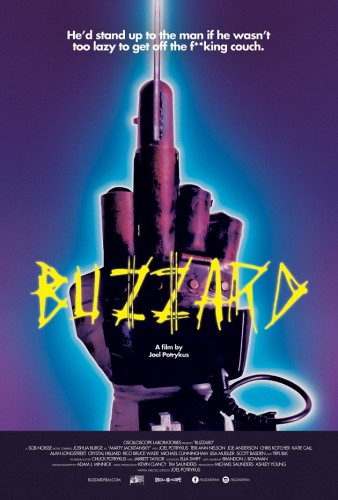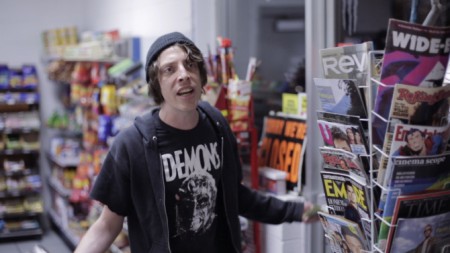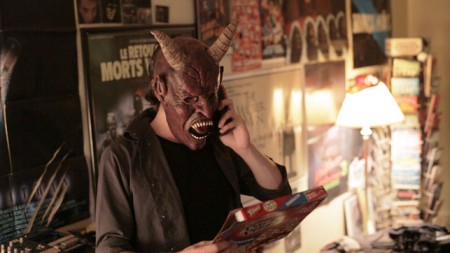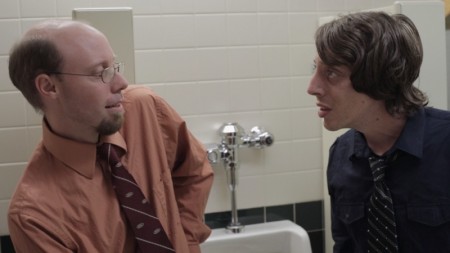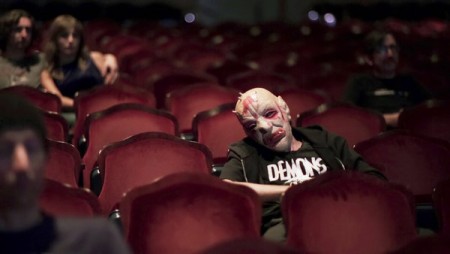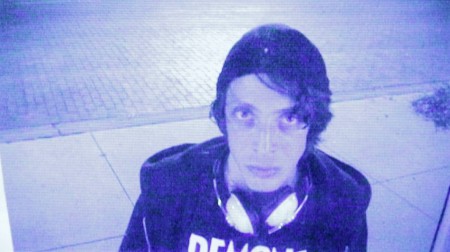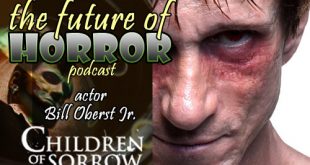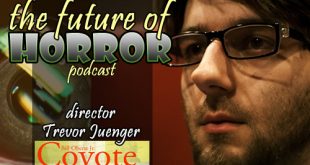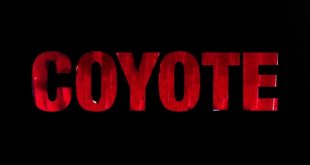Paranoia forces small-time scam artist Marty to flee his hometown and hide out in a dangerous Detroit. With nothing but a pocket full of bogus checks, his Power Glove, and a bad temper, the horror metal slacker lashes out.
REVIEW:
With his second feature, Buzzard, director Joel Potrykus takes his audience on a journey of one man’s battle with paranoia with long shots allowing often collaborator Joshua Burge to expose every pore of his character’s imperfections. The result is an uncomfortable study of slacker, small time con-artist, Marty Jackitansky as he struggles with loneliness, guilt and anger. He is the loser of all losers and every decision is misguided, selfish and based solely in the moment. The cinematic exercise of the examination is both fascinating and repulsive, unforgiving in its detail and morals. The film is not about right or wrong, it’s lead character does not even consider that even though he understands there could be consequences irregardless of any inkling of what those consequences could actually be. Every day is a dare and Buzzard dares its audience to take a seat behind the eyes of Marty Jackitansky.
Marty’s story begins with his scamming the bank who is also his employer out of fifty dollars by closing his account and then opening up a new one for the sign on bonus. He is a slacker tried and true, stealing office supplies so he can return them at the local office supply store. He lies to his mother over the phone that he has ten friends at work. Ten. The one person who does speak with him as a friend he dislikes and uses only for refuge when he suspects his boss is onto his scheme to deposit unclaimed checks into his account. Marty continues to make poor decision after another as more and more people he encounters either are onto his efforts to rip them off or succeed in ripping Marty off in the process. It is a sad, miserable life. Ironically, Marty is not out to escape his life but to avoid the consequences of his actions.
Buzzard succeeds squarely on the shoulders of its lead, Joshua Burge as Marty Jackitansky. He has a magnetic personality that draws the audience into his every expression, it is not much different than watching a ticking time bomb. Burge’s Marty lives in the moment where he can share that he is taking advantage of his own cons, his eyes light up with accomplishment as he shares a proud “absolutely.” Burge brings a sadness, a desperations and a loneliness to Marty that the character on the screen ignores, which defines the fascination. He manages to share information about the character he is playing in a way that supports the character never knowing, or at least acknowledging, himself on screen. Through Burge’s eyes, the audience learns more about the character than Marty will likely ever know. He also shares the small pleasure as Marty scarfs down a $20 plate of spaghetti while watching an unknown TV show in an overpriced hotel paid with stolen money while he is on the run from his own paranoia. Simple wrapped up in a web of complexities.
Following his short Coyote (2010) and his first feature Ape (2012), writer-director Joel Potrykus completes his loosely connected trilogy with Buzzard. Potrykus also portrays co-worker Derek in the film who allows Marty to stay in his basement for a brief time. Potrykus never condemns his character Marty, he never throws him completely into his own hell. The director displays the world as a horrible inconvenience where responsibilities and morality are burdensome and pointless. Marty lives in a world where nothing matters in his eyes. He shines the light on the characters point of view and behaviors, lazy, spoiled and slacker attitude. It is a world where the lead character’s worst enemy is himself and Potrykus revels in sharing that with his audience.
Buzzard may be sluggish and long for many while is hangs on a scene with a static camera languishing in a character’s action whether it be a long conversation focused solely on Marty’s expressions or allowing Marty to eat an entire plate of food. Not much happens in the film, most everything that happens is in the mind of the character while he hides in his co-worker’s basement or is on the run all alone. The film is often about the wait or the contemplation of what is happening or is about to come. It is all about way may happen regardless of whether it does or not. That approach can either fascinate and intrigue its audience or bore them into a stupor.
Each person’s reaction to Buzzard depends on the allure of the main character Marty Jackitansky. Joshua Burge brings a twisted charm to the character that initially seduces the viewer into the plight of this troubled character. It is whether the story that follows has enough depth or merit that remains in question. What is the point may be the actually point, what exactly is the point to anything. Or it may be about consequences and choice. It may be about the scavengers of the world as the title suggests, the bottom feeders. The film presents a richly flawed and corrupted lead in a world that is void of color and opportunity. Whether Buzzard succeeds or fails is as obscure as each day in the life of Marty or the meaning behind the final shots.
2.5 out of 5
 Horror News | HNN Official Site | Horror Movies,Trailers, Reviews
Horror News | HNN Official Site | Horror Movies,Trailers, Reviews
